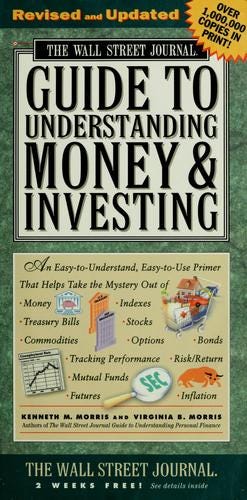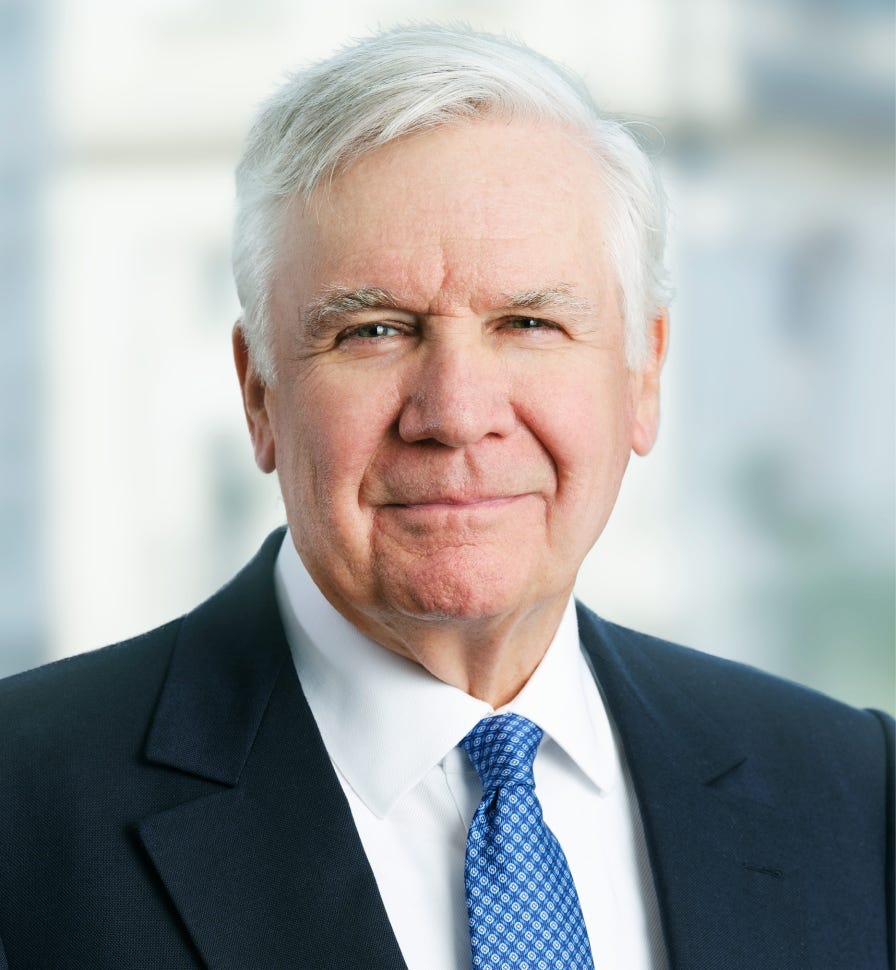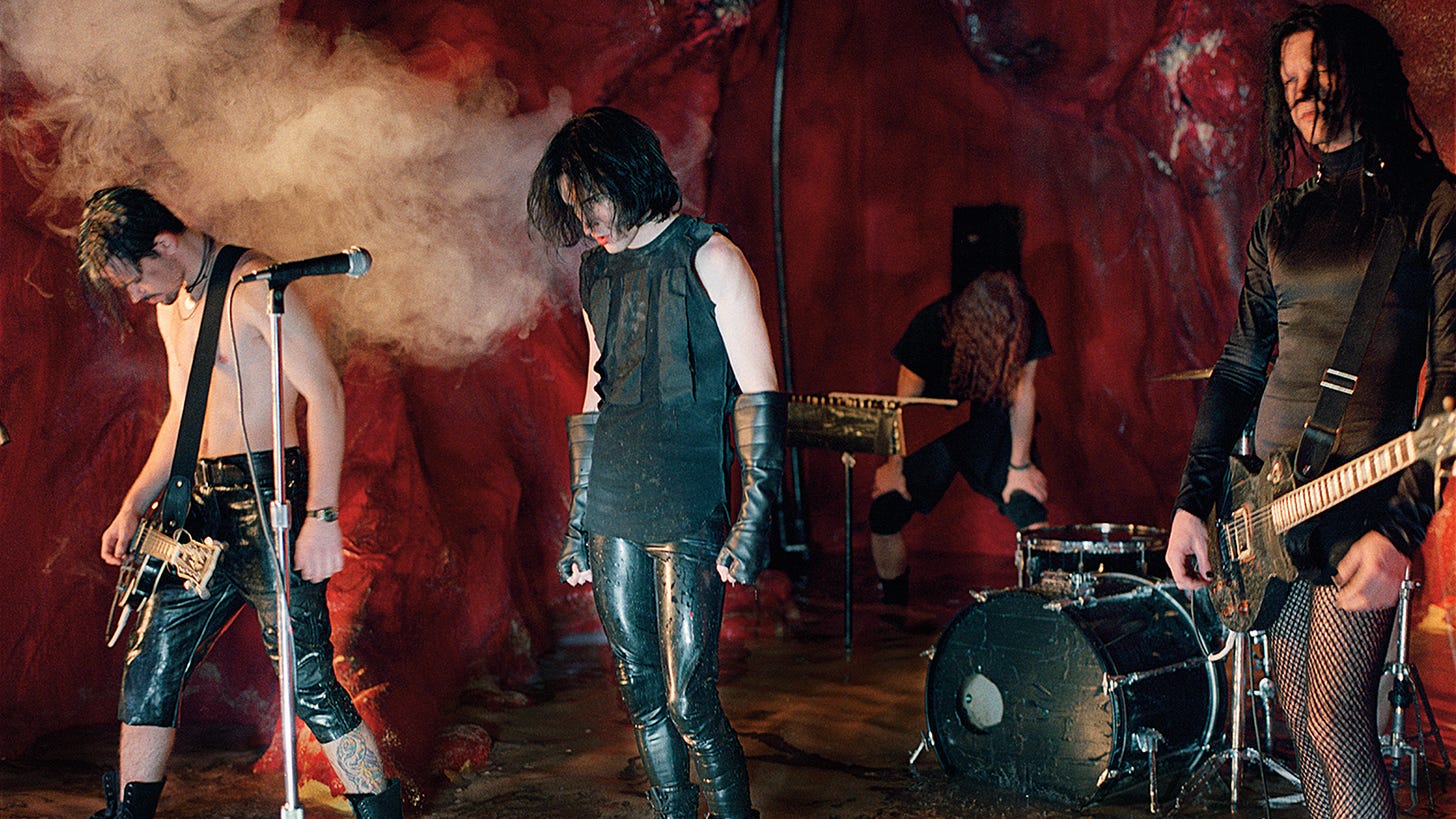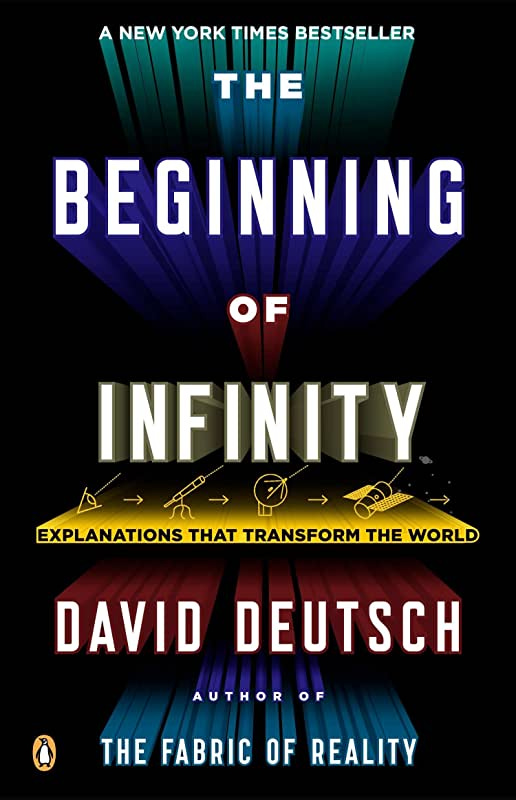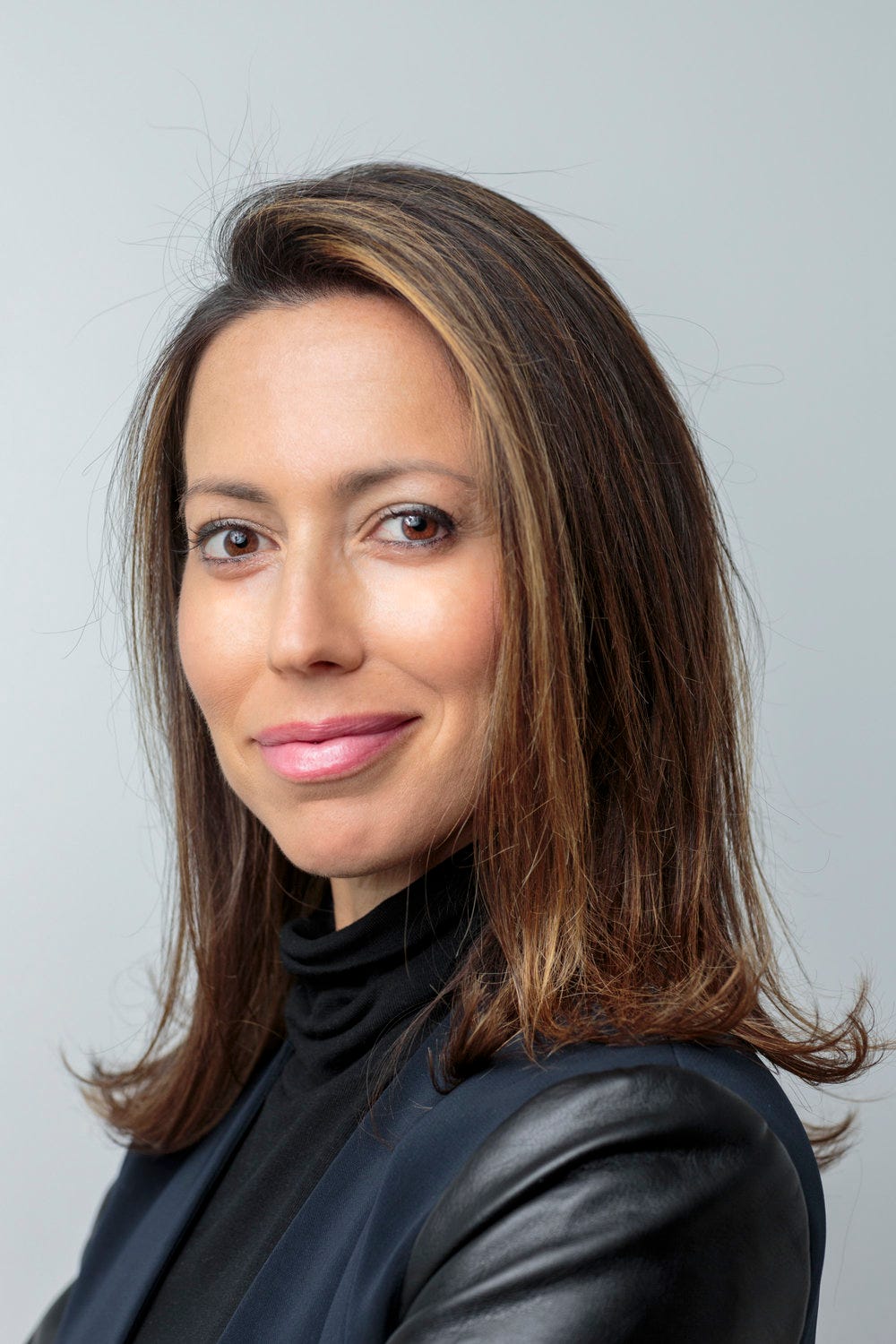Conversations: 002 - Josh Wolfe
On growing up in Coney Island, DMX, raising money during hard times, investing at the frontiers of science, and why Lux Capital is only just now getting started.
Ask around Silicon Valley about Josh Wolfe and his firm Lux Capital, and you will likely hear a few things: (1) Josh is one of the most well-read and thoughtful allocators in the venture capital space right now, (2) Lux takes bets on frontier ideas that many firms tend to shy away from, as the opportunities are so novel and exist so close to the edge of what’s possible, and (3) Josh and his team have immense conviction - willing to be exceedingly vocal about their visions for the future, and how we, as a society, will get there.
As it currently stands, Lux Capital currently has around $4 billion of assets under management, and is an investor in a wide array of companies, from fintech, to biotech, to defense, such as Flutterwave, Carbon Health, Ramp, Enveda Biosciences, and Anduril.
This conversation with Josh was great, and really showcases his broad aperture of understanding on everything from 90’s rap, finance, and all the way to the edges of scientific discovery. If you enjoyed reading the interview, I would highly recommend reading some of Lux Capital's LP Letters which Josh makes available to everyone via his Twitter.
Praying for Exits (PFE): You are a thoroughbred New Yorker, who grew up in Coney Island, Brooklyn in the 80s and 90s. Coney Island in the middle of the 20th century was a pretty gritty, rundown place, after having deteriorated quite abruptly due to a lack of business and an increase in crime, which in-turn caused the eponymous amusement park to shut down for some time. I’m sure that growing up in this environment, you were surrounded by quite a few interesting characters — con-men, hustlers, drug dealers and general grifters who were all trying to make a buck. You’ve talked a little bit before about how this kind of exposure shaped you as a man, making you more distrusting and skeptical of people generally. How do you think these learnings have affected your investing style? How do you manage to balance this perspective while also investing in the most frontier and edge cases of technology where some level of disbelief has to be suspended?
Josh Wolfe (JW): The real world contains multitudes––yes it’s filled with awe, beauty, light, potential and positivity, but there’s also darkness, danger, peril, pain and the unscrupulous preying on the unsuspecting. In your youth, if you got jumped, mugged or conned, you protectively and swiftly become skeptical and squinty-eyed. As a kid, I avoided eye contact and confrontation, and learned to never take money visibly out of my pocket at the Te Amo bodega. My mother’s car got stolen twice, my grandmother’s once, all Honda Accords. After each replacement my mom would futilely add another security measure, from a car alarm to a club across the wheel, and even a lasso lock from the radio. Our apartment door (to this day in Coney Island, Brooklyn) absurdly has four locks on it––one with a ridiculously shaped key and memorably percussive rhythm opening them in sequence. Desperate people born in desperate circumstances can do desperate things, and the truth is if someone wants something they will find a way to get it.
Perhaps surprisingly, I’ve always been ebulliently bullish about the virtues of progress in science and technology, and cynically tempered by the belief that the source and motive force of that progress comes from human vice. It’s why I say ‘chips on shoulders put chips in pockets’. The thing about science and technology is this: they have no agency or intentions. They are an embodiment of knowledge, of our reduced ignorance, and like any foundation they are built upon. It’s like a building––you can find beauty and meaning in its design and construction and rightly expect more likely than not… that the contractor is going to try to snooker you.
A few years ago there was a clip from DMX. It was dark but poignant and psychological salient, and it echoed, eerily, as it was said right before he passed: “Always trust everyone to be themselves. But trust in the fact you can see them well. It takes too much energy not to trust someone; you always have to stay two steps ahead of them. Trust people to be them. Trust a snake to bite you. Trust a liar to lie to you. Trust a thief to steal from you. Trust them to be them. But know them when you see them.” So I can be optimistic about the human condition positively progressing while being a realist that human nature is a constant.
The clip of DMX which Josh is referring to.
(PFE): You originally started out quite interested in science, and in high school was one of the semi-finalists for the prestigious Westinghouse Science Competition, where you were looking (‘naively’ in your words) for a cure for HIV / AIDS. It was also during this time that you became exposed to financial markets via a scientist on this project who would trade derivatives in his spare time while waiting for test results. You would eventually go on to begin a biology degree at Cornell before ultimately switching over to economics / finance. Was the Westinghouse experience the lynchpin in your interest in capitalism broadly? Or were there other moments you can point to that shifted your life direction from purely scientific, to embracing markets and capitalism?
(JW): Exposure to someone making money was the lynchpin. We didn’t have money. My mom was a school teacher and took extra jobs tutoring, my grandfather delivered the NY Daily News on a truck on a night shift, and my grandmother was a retired “meter maid”. The four of us lived in a two-bedroom, one-bathroom apartment in Coney Island, Brooklyn. In the mid 1990s I was in the lab and saw my science mentor making thousands or tens of thousands of dollars investing while waiting for experiments to run. I was curiously hooked.
The first real book I read was the “Wall Street Journal Guide to Money & Investing,” which was like an illustrated paperback pamphlet that explains markets simply. My mom also got me two books––one on a Brooklyn investor Victor Niederhoffer “Education of a Speculator” (he would actually go bust being on the wrong side of Nassim Taleb’s trades and risk philosophy) and “Soros on Soros”. I started reading the WSJ and Investors’ Business Daily (which was like the USA Today of financial markets), and got a summer job, with two other high school friends, working at a brokerage house cold calling from the white pages for accounts. It was at the Rockefeller Center and I remember the ill fitted pants, shirt and tie I wore. I also recall our boss asking us to write down how much we would be worth in 10 years. I don’t remember the number I wrote, but I remember it was bigger than the others in the room and my boss turned to me and said: “bold”. My next summer job was in marketing working for Tropicana juice distributor, and then in a distribution center for Stanley Kaplan test packets––both were simply terrible. By then I had read “Liar’s Poker” and wanted to make big money.
While at Cornell I did an urban semester in NYC, and worked at Prudential on the muni bond trading desk. I learned the difference between sales and trading and investment banking––and the colorful personalities that come with each, all of which would be ‘canceled’ today. That summer I got a job working in sales and trading on the financial futures and government strategy desk at Merrill Lynch and had an amazing boss who was honest. He told me I wasn’t the smartest guy he interviewed but the most likable, and it’s why he gave me a shot. That same summer I met a friend across the desk from me and it turned out her dad was a very senior exec at the bank. She invited me to their house in Greenwich, and that was the first time I saw extreme wealth. I had no idea houses or property existed like that. I couldn’t believe it. I thought wealth in Brooklyn was owning a house, but people rarely had lawns let alone acres or gates and hedges!
(PFE): You started Lux Capital in the year 2000, arguably one of the worst times in recent history to start a venture capital fund, as the internet bubble was in the process of popping. On top of this, you did not come from a wealthy family, or have a deep network of people in your rolodex to lean on to start the fund. However, you received a lucky break when you met William Conway, cofounder of The Carlyle group via a college friend. Bill would go on to be your first outside investor and long-standing backer of the fund. In what ways do you attribute this break to serendipity (i.e. right place, right time) vs. the hard work that you put into setting up the fund and establishing a clear, differentiated thesis from many of the other funds in the market at the time? While not quite as bad as 2000, many people see 2023 as another hard time to create / raise funds in the venture capital space. What advice from 2000 would you give to people trying right now?
(JW): Meeting Bill Conway was one of the luckiest days of my life. I say that “randomness & optionality” are the governing forces of my life. There was nothing in any class, in any school, or in any books I could have learned or read that would have prepared me or painted a path to navigate to Bill. The way it happened was quite random and fortuitous (keep in mind that my situation was entirely idiosyncratic, not replicable and I can’t run the counterfactual). I can only have some half-attempt at humility that the circumstances and setup of that day for Bill to say “yes” were beyond me––not in some supernatural way––but by the mood he was in, the good news he might have gotten earlier in the day, and/or if he was sated or well-rested. I can imagine a counterfactual situation where he just got bad news, had a deal blow up, or had a family issue that might have made him irritable, impatient, or intolerant of some inexperienced young kid coming in with lofty naive ambitions, a bit of gumption and pure conviction. So part of it was preparation and wanting to stand out and be articulate, impressive and passionate. Part of it was Bill’s default generosity, kindness and his own pattern recognition. And, part of it was the circumstances of that day that I will never know.
Timeless advice regardless of whether it was 20 years ago or today would be this: always be prepared, ready to pitch, ready to make a lasting impression, and ready to make the ask. Be able to articulate the current situation in the markets, and why you have an indisputably different, unique angle. And lastly, arguably the most important, people can tell if you really want something, not a greedy wanting, but an ambitious wanting––an intensity even a fiery quiet one that conveys a confidence (not a complacent confidence but a conditional one that almost says ‘I cannot fail, I cannot afford to fail, I want this and I want to win and I will be relentlessly undeterred until I do’).
(PFE): Kurion, a nuclear waste management company, seemed to be another incredible turning point in the history of Lux after the company was instrumental in the cleanup of the Fukushima nuclear disaster in 2011. By 2016, the Company would go on to be acquired by the French water and waste management company Veolia, earning you and the fund a (reportedly) 34x multiple on invested capital (MOIC). Something like nuclear waste management is not necessarily an obvious place that traditional Silicon Valley firms like to play. How do you source non-consensus opportunities like this at scale at Lux, and more importantly, how do you underwrite their chances of success within a venture capital model that has traditionally focused far more on bits than atoms for outsized returns?
(JW): I read voraciously, and I read competitively. I have information anxiety and want to know what everyone else knows, and then know more than that or find a different angle that I think others are missing. It’s arrogance of the highest order motivated by deep-rooted insecurity and desire to earn respect, admiration and status. The self-awareness of it makes it no better! Every AM I skim the NYPost, NY Daily News, NYTimes, FT, WSJ, USAToday, Washington Post, SF Chronicle and the SJ Merc. I’m looking for stories the editor has underemphasized that I think are more important, and I’m looking for patterns and clues. Sometimes it’s an evident and emerging theme––sometimes it’s the thing that’s missing. Nuclear became interesting because nobody was talking about it. All the famous VCs were talking about solar and wind and biofuels and peak oil. I had also read a book called “The Bottomless Well” which was a contrarian take on peak oil and also spoke to the physics and logic of energy density––and it was one of those hard to vary, undeniable truths that was not widely known or accepted—especially against a backdrop of dogmatism forming in the cleantech/greentech movement. Nuclear was literally heresy. And then I asked the simple two word question: “what sucks?” And while the consensus of “what sucked” was that nuclear was dangerous––the reality was that it was safer and cleaner than most semiconductor fabrication facilities. What sucked was the problem of “waste”––and after looking around for a company to fund and not being able to find a high-tech venture, we created one from scratch, recruited all the people, locked up all the intellectual property, and rounded up some of our LPs to fund it with us. Every single top VC in the Valley rejected the idea––from Kleiner Perkins to Sequoia to NEA. We believed before others understood––and it’s a mantra we carry on.
(PFE): You seem to be someone who was influenced by the ‘cultural zeitgeist’ especially in your earliest years. You self-admittedly stated that you watched “enormous amounts of TV, played TONS of video games… [and] listened to [bands like] Black Moon, Company Flow, Tool, Nine Inch Nails, Fugazi” growing up. I also pretty consistently see you tweeting about old-school New York rap and niche movies and films to this day. Overall, media generally seems to play an important factor in the Lux brand. In what way(s) does having a good sense of what is percolating in culture improve you as a builder / investor of companies? How does it help the fund as a whole?
(JW): While those are emotionally salient music and movies for me (as they were tied to formative years and lots of ‘firsts’ in life), culture never stops changing. Art, music, fashion, slang, technology are all once-future (albeit soon-to-be-nostalgic) artifacts of expression and ambition. Most importantly, they are visible and audible declarations that serve as demarcations and dividing lines of identity (a possessiveness to pit against parents or older people––”you see: this thing, whatever it is, is ours, not yours”). So understanding and appreciating that never-ending slipstream lets you connect and understand the new creators and underdogs who are the future tastemakers, trendsetters and powerplayers. If we are to protect the future from the past, we have to create it––and find and fund those who are.
(PFE): One of the most successful aspects of the Lux business has been the fund’s ability to incubate companies tackling extremely difficult and niche problem sets that have the potential for highly lucrative outcomes. A large part of this process is identifying and evangelizing individuals deep in the scientific research community and giving them the license and backing to commercialize some of their work. Could you maybe explain how this pipeline works in more granular detail, and how Lux goes about finding the most interesting people working in these oftentimes esoteric research fields.
(JW): It’s a combination of competitive curiosity and a compounding collective network. Competitive curiosity equates to reading lots of scientific papers, looking for patterns and emergent signals from new breakthrough research findings. It also means seeking out the unique creative irreverent scientists we may not yet know, seeing their spark and anticipating that they will be fountains of future work so we contact them, talk about their work, get to know them, learn about their ambitions, and see the kind of talent they are attracting as post-docs in their labs. It is the kind of investment of time and money that might take years before there is a commercially backable breakthrough that is ready to be part of a company. But we want to be their first call. Sometimes there are multiple principal investigators at different universities who are simultaneously working on elements of a new breakthrough, and our job becomes getting them to be collaborative, not competitive, with each other towards being part of one unified company instead of seeing multiple redundant ones. Getting highly intelligent, high-ego people to subjugate their ego and own a smaller piece of a potentially much bigger pie isn’t easy! Another way we find folks deep in the scientific community is the second part of what I mentioned, the compounding collective network. Our existing entrepreneurial scientists part of the Lux family companies are often our best recruiters, and a really valuable sourcing and filtering function to help us spot, screen and sell emerging talent on why Lux should be their partner of choice to build a newco. The bigger our network gets, and the more we do, the better this process gets.
The process is a mix of technical, administrative, creative and selling facets. We work on company formation and incorporation with the founding scientist, setting the cap table up for success. From there we work with their employer to negotiate IP licenses, royalties and equity, along with diligence criteria that are the minimum requirements of investment, or advancement of the key patents being exclusively licensed (or else it reverts back). In parallel we refine the pitch and vision, setting milestones for corporate development, team building, technology advancement, competitive positioning and more. We assist with narrative and story-telling, recruiting typically the first dozen or more folks ranging from PhD postdocs to other early employees form the key labs who will take full-time roles at the newco, attracting early advisors and strategically relevant Board members, setting milestones for the initial tranche of capital and forming a selective syndicate of value-add deep-pocketed coinvestors and lining up strategic investors for later rounds. Then we will help construct a launch plan to come out of stealth through the right mediums and media to attract future hires, partners and investors. It’s like producing a movie and when we execute it well it is a LOT of fun––creating something from nothing! And months after launch we look back always with awe that it all came together and we get to do it again and again.
Another fun phenomena is how one company leads to the next in a compounding daisy chain. When Lux backed Charles Zuker at Columbia we co-founded and launched a new company focused on the gut-brain axis called Kallyope. Charles would hear our thesis on “the half-life of technology intimacy” and introduce us to Thomas Reardon, a postdoc at Columbia who we helped build CTRL-Labs before its near $1 billion acquisition by Meta. Meanwhile another Kallyope founding scientist Ian Peikon, PhD would become a venture partner at Lux, and help us identify and launch several newcos including one he co-founded called Cajal Neuro focused on breakthroughs for Parkinson’s and Alzheimer’s and other neurodegenerative diseases. We recruited Rob Hershberg to help co-found and Chair the Board of Cajal, and also recruited him to another Lux family company at the nexus of AI X biotech called Recursion. A key employee from Recursion, Viswa Colluru, went on to found Enveda Biosciences where we became a key early investor. Meanwhile Lux venture partner Ian Peikon also introduced us to his Cold Spring Harbor colleague Stephane Castel whom we co-founded Variant Bio with to focus on real-life mutant genetic variants that may possess rare targets for drugs that can be extended to the masses. The point of all this? The Lux network compounds in an amazing way that ensures we are always ambitiously and aggressively expanding the spotlight on the known into the “adjacent possible” to form new ventures.
(PFE): From many of the people I have spoken with in the industry, pretty much all of them say you are one of the most well-read venture capitalists across the entire landscape. Not only that, but the general consensus is that you have an extremely broad range of interests and knowledge, that runs the gamut from science, to history, to philosophy, and all across different eras and cultures. This is pretty evident in your talks, tweets, as well as many of the Lux LP letters that are publicly available (which are an awesome read and I would highly recommend by the way). Why do you feel like it is so important to consume such a broad range of topics if you are largely investing in relatively specific, defined verticals? If you had to synthesize a list of five books that truly shifted the way that you see the world, and that you could attribute your success as an investor to, what would they be, and why?
(JW): I have competitively-driven information anxiety, and I am insatiably curious. I feel extraordinarily lucky to be alive, and free to be skeptical and not live in an oppressive society where I have to abdicate reason. I am drawn to non-fiction writers that have polymathic interests in pursuit of truths and deeply research connecting disciplines and reasoning by far analogies between them. If you take books like David Deutsch’s “Beginning of Infinity”, Eric Beinhocker’s “Origin of Wealth”, “Complexity” Mitchell Waldrop, Steven Pinker’s “How the Mind Works”, and EO Wilson’s “Consilience”––each connect multiple disciplines, break down silos, seek universal truths, and look at emergent phenomena between the hard and social sciences from psychology to evolutionary biology to physics and the arts. I love finding constants across fields, and the one that I am probably most obsessed with is entropy and nonequilibrium systems. The latter flies in the face of most economics and finance theories as well as many valuation and risk techniques, from mean-variance theory to capital asset pricing model to VaR (value at risk) to “beta”––that is premised on theoretical ideas that really don’t hold up in reality. On entropy––it’s the one rule to rule them all, the Second Law of Thermodynamics––that all systems trend to disorder without a constant input of energy. Simplified you can see this in trivial things like a bedroom or office that gets messier without energy to clean it up, interpersonal relationships that require attention and emotional investment, resources and capital needed to fuel and sustain companies whether generated internally from operations or raised externally from investors, formations in nature from whirlpools to hurricanes, and most interestingly to me in markets where there are imbalances that lead to booms and bubbles and bursts and busts.
(PFE): Your wife, Lauren Taylor Wolfe, is the co-founder of a hedge fund called Impactive Capital which has approximately $2.5B AUM. Her fund is an activist investor, and they are quite vocal about their perspectives on how to improve the businesses in their own portfolio, as most activist investors are. What are some things that you have learned from her and the way she operates in public markets that you have taken with you in your own investing in private markets at Lux? What are some of the things you feel as though you two are diametrically opposed when it comes to investing broadly? Where do you see things similarly?
(JW): Style-wise and philosophically, Lauren and Impactive are active value investors finding profitable positive cash flowing publicly traded businesses where she and her team can come into existing known but misunderstood businesses and collaboratively work with management and affect positive change to drive economic returns for shareholders. They don’t take technology risks, they’re rigorously analytical and they expect the numbers can reveal the truth of management’s good or bad capital allocation strategies that they can help improve. In contrast, I and Lux fund the complete opposite––unprofitable cash-burning sometimes seemingly far-fetched sci-fi tech dreams of scientific or engineering founders, where we take full technology risk. Some of these private ventures don’t exist until we help co-found or create them. There are no profits or cash flow, let alone any really meaningful revenue or often any numbers to analyze. We are relying on subjective probabilistic assessments, pattern recognition, and psychologically profiling founders. Our internal confidence comes from our experience and network that we leverage to help recruit talent to build teams, investment round syndicates, advise on product strategy and help with supply chains and distribution. Lauren’s filter for companies means it’s infinitesimally improbable to ever see a company go under, whereas for me and Lux––it’s not just possible but highly probable. Another big difference is the action we can take on information. We traffic in legal, inside information from private companies which lead to insights for investing in other new private companies and also share allocations that are competitively zero-sum. Whereas public investors have strict compliance, and while prices fluctuate up or down they can regularly buy or sell shares in the open market. Our companies are illiquid and we are locked in and can’t hedge, whereas Lauren, though rare to make a mistake, can reverse a decision or hedge it. So I guess I’m mostly just hoping she and her team don’t ever short our companies! ;) Lauren is brilliant, savvy and effective and has an incredible partner in her cofounder Christian. And they have a dynamic like Peter and I, balanced in their respective dispositions and strengths complemented with a strong moral compass, shared ethics and values, and big long-term ambitions. A few things we absolutely see similarly: championing the underdogs, whether underseen, underserved or underrepresented in our portfolios, our firms or our networks, attracting the kinds of Limited Partners (effective and prestigious endowments, charities, foundations, families, retirement plans and pensions) we are proud to serve––and generally holding ourselves to standards that make our kids proud of us-––and us proud of each other.
(PFE): You have been vocally outspoken against the macro environment for quite a few quarters now, and were one of the earlier people that I can remember who were actively positioning your portfolio companies towards raising rainy day funds, reducing burn, and orienting themselves towards an extended downturn. In the Q3 Lux LP letter, you stated that the firm was adopting 3 distinct strategies to insulate and protect your portfolio through this downturn - 1. Bubble, or putting your companies in a protective bubble via cash positioning so they had adequate runway to weather the storm, 2. Anti-Bubble, taking advantage of special situations where existing cap table members of strong companies may no longer be in the position to support them, and 3. Consolidation, taking advantage of market leaders who might be in the place to roll-up their sector. While these describe some of the best practices Lux as a firm has taken in anticipation of a protracted shift in the market, is there anything you believe needs to fundamentally change about the human nature of the ecosystem (i.e. from founders and the venture capitalists who back them) in order to make sure we do not repeat this over-exuberance again later on down the line?
(JW): It will repeat again. And again and again. Of that I’m certain. There will be silly reactive regulations that are well-intentioned but have unintended consequences (just like Sarbanes-Oxley did). And the regulators are always the coroner, never the clinician or the doctor. They will seize the spotlight after the crash but were asleep at the wheel not wanting to be blamed.
From Lux’s standpoint, beginning about two years ago in 2021 our main admonishment made privately to our portfolio and then posted publicly was first: capitalize on current markets and build warchest balance sheets. Nearly all Lux companies listened and did this well and wisely. Then it was to husband that cash and not spend it unwisely as we cataloged an excess of excesses. And then to focus on consolidating competitors and their talent, customers and channels to market.
There is a book by Kazuo Ishiguro “The Buried Giant”, and in the background there is this curious mist which creates a collective amnesia amongst the characters. And spoiler alert––the Buried Giant is a metaphor of war and the memories of rivalries and cycles of violence. All the characters have forgotten their tribal and interpersonal grievances that anchored animosities and led to bloody war between them. It’s a beautiful story and a meaningful metaphor of memory––about the power ties that can bind us through shared recollections––and yet those same memories can also destroy us by fueling vengeance quests and retributive retaliations and patterns of hatred and violence. What’s this got to do with markets? We are coming out of a mist––animal spirits and low-cost capital cash sloshing in the system created a fog that caused many to forget the past. And many more that still might have read about past booms and busts but because they are not emotionally viscerally experienced, they don’t hold the emotionally etched memories. New generations cannot remember what they never forgot.
Prices are the sum total of participants' expectations. In the short-term markets are voting machines and amplified measures of popularity and human emotions––and in the long-term weighing machines and muted measures of company fundamentals. When there is a new technology or new generation, there is no memory of the last cycle’s losses. They have to be viscerally experienced and permanent losses have to be painfully felt to be seared in as lessons. Many give back the money but keep the memory and the experience. It’s inefficient and wasteful––but it happens every generation and will surely happen again in 20 years if not sooner. And that next generation of 20-somethings in 2040 will tell this current one now in their early 40s that “this time is different” and they are outdated fuddy-duddies. They will mock EDM music and slang (“bet”) and clothes––just as Gen Z did of Millenials and Gen X before nudging them off center stage to make room for the new. It’s no different than general cycles of each generation learning, say the importance of free speech or studying history to avoid repeating it. But no matter how well read someone is––greed is powerful and when all others about you are making money and information cascades are sweeping people up––it’s hard to sit it out. It’s like an old joke of the oil speculator who goes to heaven and is warned at the gates that there are so many speculators already that there’s no room for him. So he asks if he can say just four words. That seems harmless to the gatekeepers who say yes. So he pokes his head in and shouts out to all the others––”Oil discovered in hell!” Sure enough all the oil speculators stampede like a herd out of heaven chasing riches in hell. The powers turn to the oil speculator with some admiration of his exploitation and say: alrighty, well come on in––it’s all yours.. But he pauses and turns on his heels to follow the rush and says “you know what, there might actually be some truth to that rumor!...”
(PFE): What do you feel like you still have to prove with Lux? And if there’s nothing you feel like you have left to prove, what is the primary driving force behind the continued desire to push the envelope with technologies on the “edges”?
(JW): We are only just now getting started. We have everything to prove. We are only as good as our last investment. The Lux partnership has recruited incredible emerging talent, hungry, ambitious, competitively motivated and kinetically connecting with similarly ambitious, competitively motivated peers and founders. There are so many sci-fi dreams to turn into real sci-fact ventures. There are so many brilliant, curious, ambitious emerging technologists. There are so many amazing founders with chips on their shoulders whose names the world does not yet know or speak of but soon will. For over 15 years we have been co-founding and launching new companies out of university labs or a seemingly crazy thesis the partnership came up with, in what we internally call Lux Labs. This has ranged from high-tech nuclear waste treatment that helped in the Fukushima disaster… to 4D LIDAR where we backed a duo out of Apple’s special projects division to realize their own vision and give computer vision to vehicles…to creating nearly a dozen biotech companies from vaccine discovery to elucidating the gut-brain axis to come up with new drugs for obesity and neurodegenerative disease…to finding real-life X-men mutants with outlier traits in outlier parts of the world. In the coming years with this Lux Labs initiative we will be putting hundreds of millions of dollars to work behind brilliant talent helping to invent the future we will all live in.
The world has been drunk on SaaS for a decade and the hangover will suck. Attention is deservedly shifting to other areas now attracting some of the smartest engineers we’ve ever seen––from aerospace and defense to cutting-edge biotech leveraging computer science to discover and design molecules, drugs, in ways never before seen.
The pace of technological change is always accelerating. Consider this: much of the newly distributed computing infrastructure built out in a speculative rush to mine bitcoin is in some cases being repurposed to more quickly and cheaply train foundational models in AI away from Meta, Google and OpenAI. You have an open source movement with strict cultural adherents that has a thread from Linux to Wikipedia to Hugging Face with new business models and expectations that threaten old centralized siloed systems. And, especially at the interdisciplinary nexus of different domains where Lux lives––software x biology, additive manufacturing x automation, space x high-speed communications, high-fidelity 3D scanning x surgery, generative design x physical real-estate. The combinatorial possibilities are yielding, and in Darwin’s words––endless forms most beautiful.





